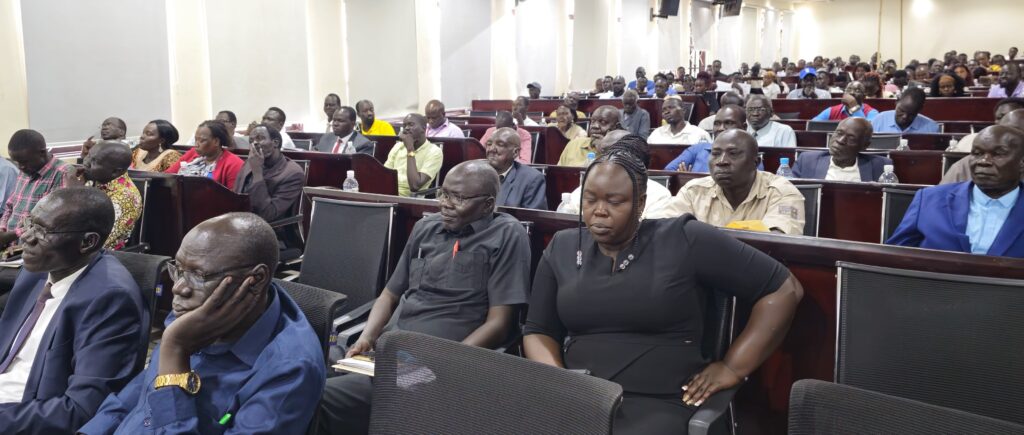After nearly two decades of delays, South Sudan has taken a major step toward finalizing its long-stalled National Land Policy. A public lecture organized by the International Organization for Migration (IOM) on Tuesday brought together government officials, land experts, civil society groups and development partners to address persistent land management challenges.
Held under the theme of inclusive dialogue and institutional reform, the event in the capital, Juba, allowed citizens to directly question officials about longstanding land disputes. A key focus was the urgent need to implement the National Land Policy, a legal framework first drafted in 2006 but repeatedly derailed by conflict and political instability.
“This event is just the beginning. We want a platform where the South Sudanese people can talk to the government and where the government can respond clearly on land policies, reforms and rights,” said Aia Unadem Ajame, head of IOM’s Housing, Land and Property Program.
Ajame said IOM has spent the past three years strengthening land management and dispute resolution systems, particularly as South Sudan receives returnees fleeing Sudan’s war.
“Many returnees lack civil registration or land documents. Some are denied access to their own plots,” she said. “We’ve worked with the U.N. refugee agency and the government to help them reclaim land, obtain documentation and understand their legal rights.”
A Policy Delayed Too Long
George Ritti Richard, a director at South Sudan’s Ministry of Lands, Housing and Urban Development, traced the policy’s troubled history. Drafted between 2006 and 2013 through public consultations, it was submitted to the national assembly in 2014 but stalled amid conflict and political inertia.
“From 2014 to 2017, it was ignored. This delay has denied the country the chance to manage land and land-based resources sustainably,” Ritti said.
With IOM’s support, the policy was revised in 2019. A final version was approved by the government’s Economic Cluster in July 2023 and passed by the Council of Ministers in October. It now awaits ratification by the Transitional National Legislative Assembly.
Gender Gap and Customary Law
Dorothy Drabuga, chairperson of the South Sudan National Land Alliance, praised the lecture but warned that the land sector remains deeply biased against women.
“Women’s land rights are enshrined in the constitution, but in practice, they’re often excluded, especially in inheritance cases,” she said. “Most land institutions are male-dominated. We need women in decision-making roles.”
She called for better training and coordination among local land authorities and highlighted tensions between statutory law and customary practices that often disadvantage women.
Local Challenges
State officials outlined their own struggles. In Upper Nile, Minister Michael Nyatho said thousands of displaced people and returnees lack shelter or legal documents.
“Some have no records to prove ownership,” he said. “We’ve built 326 shelters, but roads and water access remain problems, especially during rains.”
In Unity State, Minister Stephen Kuine said 95% of land near Bentiu is submerged due to flooding.
“We still use manual land registration, mostly in Arabic. We need digitization and better tools,” he said. With IOM’s help, about 45 square kilometers of land has been reclaimed and could be resettled by 2025.
Path Forward
Despite the challenges, officials expressed cautious optimism.
“The delay became an opportunity,” Ritti said. “We now have a stronger, more inclusive draft shaped by wartime experiences.”
Ajame stressed IOM’s role is technical, not political.
“The government leads. We provide support so policies become tools for justice, not just documents,” she said.
With South Sudan preparing for 2026 elections, land reform remains critical. If passed, the policy could offer clarity and equity for millions grappling with displacement and unregistered land.




